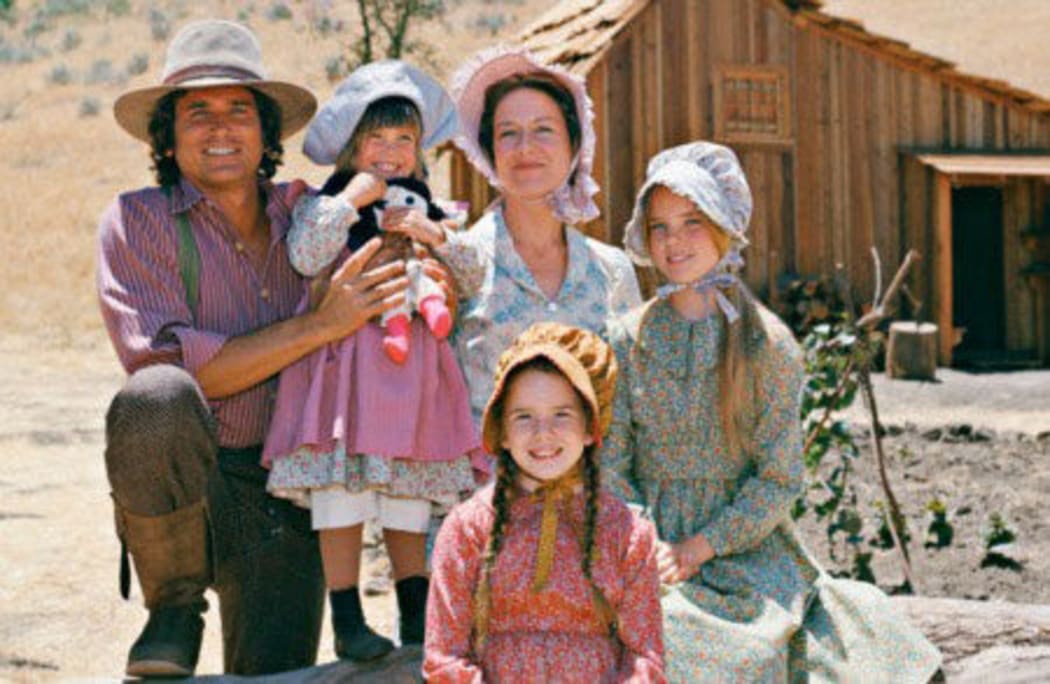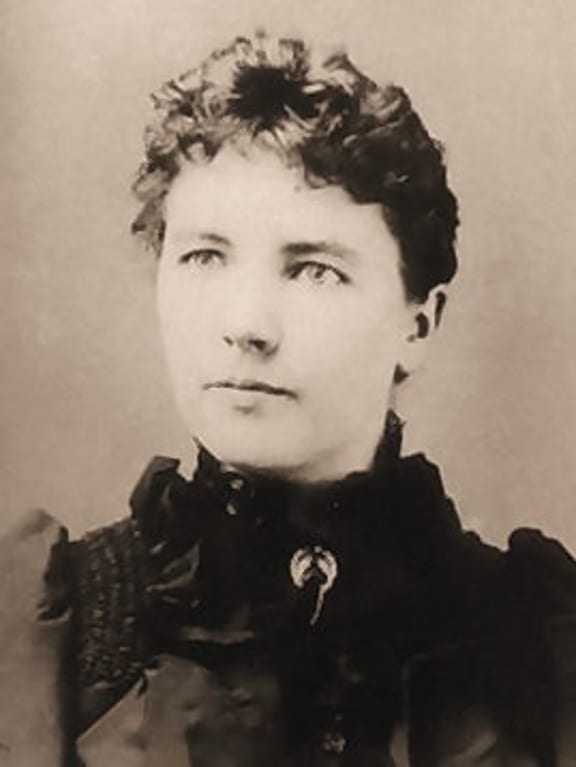Award winning writer Paula Morris recently published a collection of short stories and essays called False River - around the theme of lying and secret histories.
The book includes an essay on the classic Little House on the Prairie books.

Little House on the Praire Photo: Littlehouseonthepraire.com
The stories are set in the Midwest of America around 1870 but were actually written in the 1930s and 1940s - the depression and the war years.
They were the supposedly true memoirs of Laura Ingalls Wilder and her hard scrabble, yet idyllic childhood.
Later in the 1970s the books were made into a highly successful albeit saccharine television series.
Paula Morris grew up reading the stories and eventually made a pilgrimage to the mid-west.
"I longed to go to a prairie, I didn't know what a prairie was. I didn't know what anything was! I was able in the 1990s to do my whole Laura Ingalls Wilder pilgrimage I went to every single place she ever lived which is a lot of places: Wisconsin, South Dakota, Minnesota, Kansas, Missouri, Iowa which was left out of the books and also upper New York State where her husband was from."
There has always been some debate as to the authorship of the books and how much of a role Laura's daughter Rose Wilder Lane played.
Rose was established as a highly successful writer when her mother came up with the first draft of what would become the Little House books.
Whether she ghost wrote or heavily edited the manuscripts, Rose inserted her libertarian right wing values into the stories, Morris says.

Laura Ingalls Wilder Photo: Wikicommons
"Rose is very important person in the American libertarian movement, she was very opposed to the New Deal, very opposed to FDR, she did not want to have a social security number she thought everyone should live by their own wits and capabilities."
Consequently the stories were framed with this rugged individualist narrative in mind, even if that meant veering away from what actually happened in Laura's childhood.
"Rose made some very key changes to the stories, at the end of the second book, she's got the government driving the Ingalls family out of Indian territory; they're forced to move on because of the terrible interfering government.
"In real life the reason they went back to Wisconsin was because someone had defaulted on the mortgage on their farm they had to leave go back and take it over again, but that was removed from the narrative because it wasn't part of this forward momentum of always moving west and being resilient."
Nevertheless, both Laura and Rose were insistent every word of the books was true.
"We all grew up thinking it was the absolute truth, this is what real life was like, these were real people … the books became so popular they sold millions of copies around the world and Laura became a superstar it was very important they said this was all true, these are absolute factual accounts of life on the prairie."
The success of her mother began to grate on Rose, Morris says.
"Rose really resented working on the books when they began the series Rose's career was huge, she was a very well-known, but during her own life time to see herself completely eclipsed by her mother and her own writing career languish.
"She stopped writing novels, she stopped writing short stories all she was interested in was politics. Her mother who she regarded as not really a writer was the one who ended up with the major career."
Rose became a major figure in the American Libertarian movement and in fact later when the books were made into a TV series the money helped fund a far right presidential campaign.
Neither Laura or Rose wanted a television show made of the books but when they died in 1957 and 1968 respectively, Roger Lea MacBride inherited the rights as he was Rose's executor and sole heir.
"He [MacBride] was a libertarian, he called himself Rose's adopted grandson, which was a nonsense, and he had political aspirations he wanted to run for president in the 1976 campaign on the Libertarian ticket so he needed a lot of money to do that, so he sold the rights.
"I think it was ironic that when we were growing up, and our parents were buying the books and our libraries were buying the books that all money was going to fund a big right wing campaign in the US."

